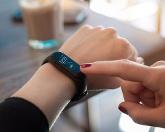McKinsey releases 2024 wellness market report. Identifies areas for disruption

According to McKinsey’s latest report, The trends defining the US$1.8 trillion global wellness market in 2024, the market for wellness is being driven by consumers taking more control of their health.
The report is based on insight from McKinsey's latest Future of Wellness survey, which was carried out in August 2023, when researchers questioned 5,000 consumers across China, the UK and the US.
They found the US wellness market has reached a value of US$480 billion a year and is growing at 5 to 10 per cent annually.
Eighty seven per cent of Chinese consumers consider wellness a top or important priority in their lives, compared to 82 per cent in the US and 73 per cent in the UK.
Gen Z and Millennial customers are the most wellness-conscious, buying more products and services than older generations.
Improving appearance is cited as the most important motivator, followed by gaining better health and fitness, improving nutrition, sleep and mindfulness.
The pandemic got consumers used to home-testing for COVID-19 and now they're interested in doing additional at-home diagnostics, for example, for vitamin and mineral deficiencies, cold and flu diagnostics and cholesterol. In China some people have even replaced in-person healthcare appointments with at-home tests, says McKinsey.
A new era for biomonitoring and wearables is here as the technology evolves, with biometric rings to measure sleep quality and continuous glucose monitors now available that can be applied on the back of the arm.
Around half of consumers surveyed have purchased a fitness wearable at some point, while 75 per cent are open to using one in the future and a third used their devices more this year than last year.
McKinsey says there is still a gap in the market for wearables to aid with nutrition, weight management, mindfulness and behaviour change. Data privacy and clear insights are most important, with overly complicated information being off putting.
Technological advancements and first-party data is giving personalisation a new edge. Around 20 per cent of UK consumers and 30 per cent of US and Chinese consumers are looking for personalised products and services which use biometric data to provide recommendations. Generative AI could play a greater role here.
Last year consumers showed a shift from clean or natural ingredients to clinically proven ones, particularly in over-the-counter medications, vitamins and supplements. Companies that who have built a brand around natural products may want to seek out third-party certifications to substantiate their claims.
Consumers are done with healthwashing (deceptive marketing which positions a product as healthier than it is) and healthcare provider recommendations are rising in importance, especially around mindfulness and sleep interventions.
Seven areas of growth have been identified in the wellness sector:
1. The sale of women’s health products is on the rise, with the highest spend being on menopause and pregnancy-related products. To date menopause has been an overlooked segment.
2. Demand for healthy aging and longevity products and services is increasing, propelled by a shift towards preventative medicine. Around 70 per cent of consumers in the UK and US, and 85 per cent in China, have purchased a product in this category over the past year.
By 2030 one in six people in the world will be aged over 60, so there will be a greater focus on healthy aging, with younger people looking for preventative solutions and older people seeking to improve their longevity.
3. Weight management is still top of mind, with 60 per cent of US consumers trying to lose weight.
Exercise was the most reported intervention, but more than 50 per cent of US consumers are considering taking prescription weight loss medication.
This was less in the UK and China, with fewer than 30 per cent considering weight loss drugs to be effective.
McKinsey says it's too early to say how the use of weight loss drugs will impact the broader health and wellness market.
4. Fitness is now a priority for many consumers, with around 50 per cent of gym-goers saying it's a core part of their identity.
With more choices, the health and fitness market is getting more competitive. McKinsey recommends building strong communities by delivering experiences such as retreats, nutritional coaching and personalised workout plans, possibly informed by AI.
5. Awareness of the importance of gut health is growing, with more than 80 per cent of consumers appreciating its importance and more than 50 per cent planning to make it a higher priority in the next few years. Over-the-counter probiotic supplements are popular, along with probiotic-rich foods such as yoghurt, kimchi and kombucha. Two potential areas for growth are at-home microbiome testing and personalised nutrition.
6. The market for sexual health products grew during the pandemic and this – coupled with an increase in the prevalence of conversations around sexual health challenges – is driving demand. More traditional retailers are selling sexual-health products and McKinsey says there's room for more disruptor brands.
7. Sleep ranks as the second-highest health and wellness priority for consumers and is also the area where consumers have the most unmet needs. Little has changed since last year when 37 per cent expressed a desire for more sleep and mindfulness products that address cognitive functioning, stress and anxiety management.
There is an opportunity for companies to address the pain points, delivering interventions that induce sleep, minimise sleep interruptions, ease wakefulness and improve sleep quality.
Footnote
More wellness insights will be available next week when Global Wellness Summit hosts a 2024 Trends and Research event and releases its global trends report The Future of Wellness for 2024.

Swim Teacher
Team Leader
Facility Manager - LSBU Active
Duty Manager (Dry)
Health and Fitness Instructor
Head of Operations
Senior Leisure Officer
Swimming Teacher
Swimming Teacher
Company profile

Featured Supplier

Property & Tenders
Company: Jersey War Tunnels
Company: Savills
Company: Cotswold Lakes Trust
Company: Knight Frank
Company: Belvoir Castle







































